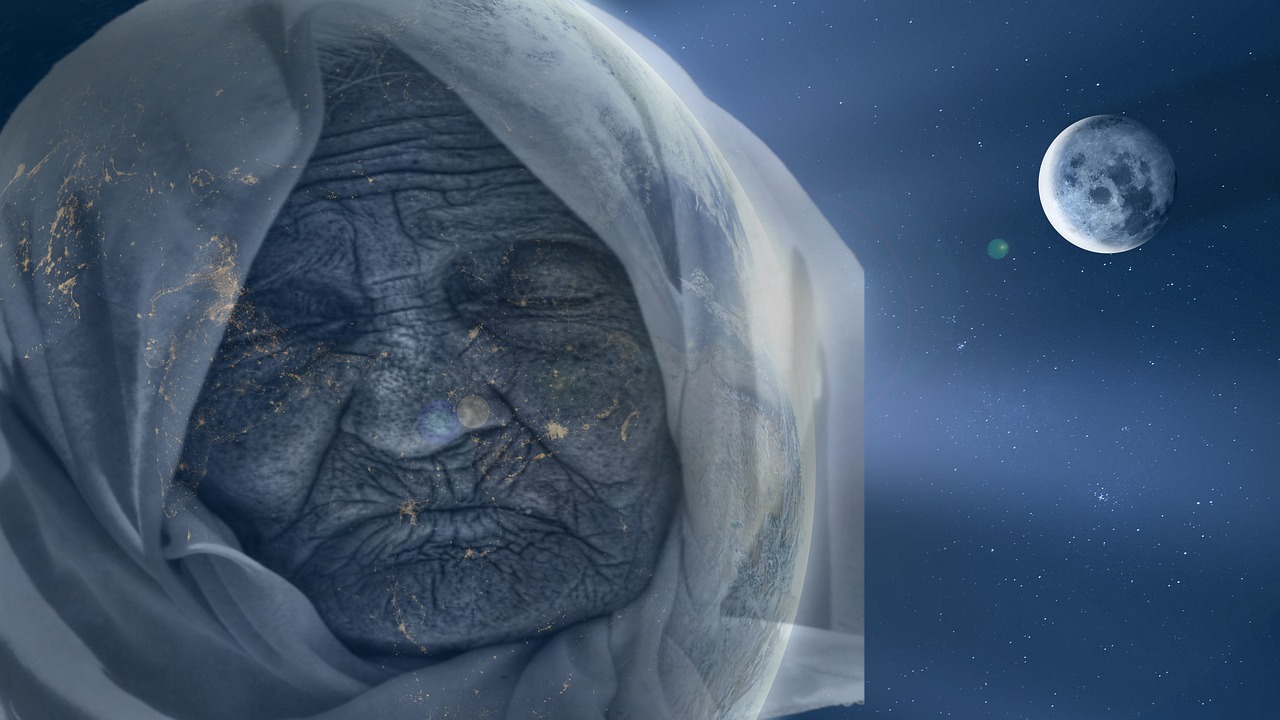Vijesti ROMI.HR
/"Zavirite duboko u prirodu i tada ćete sve bolje razumjeti", rekao je jednom Albert Einstein. Povodom obilježavanja međunarodnog Dana planete Zemlje 22. travnja, ovaj citat se može smatrati inspirativnim devizom koja poziva ljude širom svijeta da se pridruže ovom prazniku, koji pokazuje međuovisnost svih živih bića.
Prijevod: Daria Maracheva
Neko tko je dio domorodačkog stanovništva Sibira će se neizbježno suočiti s trenutkom kada će shvatiti da ima poseban stav prema prirodi i okolini.
Sada mi je teško sjetiti se onog trenutka kada su nastali moji zbunjujući odnosi sa prirodom. Djelomično se to može objasniti time da, iako sam čitav život živjela u gradovima, uvijek sam zastupala mišljenje da su predmeti koji nas okružuju imaju neku vrstu duše.
"Nemoj da povrijediš zemlju, djevojko", moja prabaka govorila je mojoj mami kad se ona igrala ispred obiteljske kuće u malom selu početkom 1970-ih godina. Cijela ideja bila je prilično jednostavna i sastojala se u tome da nije potrebno prekopavati zemlju bez objektivnih razloga, jer se time poremećuje netaknuto stanje prirode.
Starica, koja je odgajala svoje unuke na udaljenom području Sovjetskog Saveza, nije imala pojma o intenzivnom tempu industrijalizacije koji se odvijao u cijeloj zemlji i širom svijeta. Držeći se svojih uvelike zastarjelih uvjerenja o mogućnosti održavanja harmoničnih odnosa s prirodom, ona je i dalje učila svoje unuke da je nanošenje štete zemlji isto kao i povreda živog bića - sramotno i može dovesti do brojnih neželjenih posljedica. "Kad je povrijeđena, priroda pati jednako kao i bilo koji drugi čovjek ili životinja", govorila je prabaka.
Vrijeme je prolazilo i sad je mi je već i moja mama pričala o važnosti brige o prirodi. Još uvijek se sjećam kako me podsjećala da se trebam ponašati s poštovanjem prema drveću i biljkama svaki put prije nego što sam išla na obiteljski odmor. "Priroda je živa i osjeća isto kao i svi mi", naučila sam od malih nogu. Iako je donekle praznovjerno, ovo razumijevanje metafizike postalo je sastavni dio mene, bez obzira na to što sam nakon toga naučila u školi na satovima znanstvenih predmeta.
Moguće je da to je u određenoj mjeri stvar kulutre, jer mnogi Burjati sa svojim obiteljima posjećuju svoja duhovna mjesta i uzimaju sa sobom mliječne proizvode, bombone i čaj. Tokom takvih rituala koji se provode svake godine, burjatske obitelji predlažu prirodi da uživa u hrani koju oni nude.
U mojoj obitelji poštujemo lokalnu planinu moleći je za blagoslov, milost i zaštitu za iduće godine. Naša obitelj vjeruje da se planina koja utjelovljuje mudrog starca, stoljećima brinula o našem narodu i zaštićivala ga je od nesreća.
Istovremeno, to je bila dvosmjerna komunikacija, budući da su se i pripadnici burjatske nacionalnosti uvijek trudili čuvati svoja duhovna mjesta. Vrlo dobro znaju da je priroda milosrdna, ali ipak može uzvratiti.
Osim semantičkog dijela, takva romantizirana percepcija prirode i okoline ne mora biti povezana s dostupnim načinima rješavanja ekoloških problema ili provedbom određenih strategija zaštite okoliša. Ipak, može doprinijeti boljem razumijevanju činjenice da je briga o prirodi i planeti Zemlji važna.
Svake godine, 22. travnja, ljudi širom svijeta slave međunarodni Dan planete Zemlje. Oni se pridržavaju načela prema kojem su "Zemlja i njezini ekosustavi naš dom" i pozivaju na "promoviranje sklada s prirodom i Zemljom". Povodom tog Dana ističu se prijedlozi poput "dana bez plastika" te "istražiti kako domoroci poštuju Majku Zemlju u svojoj kulturi ili religiji".
Konkretno, jedan od pristupačnih načina kako bi se moglo saznati više o jedinstvenim odnosima s prirodom je čitanje knjige Patricka Jaspera Leeja, suvremenog romskog pisca iz Velike Britanije "Posuđujemo zemlju: intimni portret romske tradicije i kulture šamanizma". Knjiga daje uvid u nomadsku kulturu Roma, te priča o tome kako život ljudi na ovom planetu može biti manje štetan.
Nemilosrdan kritičar može svejedno tvrditi da su koraci koje poduzimamo kako bi spasili Zemlju mali ili ne dovode do promjena. Ipak, od recikliranja do podizanja svijesti o trenutnoj ekološkoj krizi, naši pokušaji da dovedemo u pitanje status quo značajan su pomak ka promjenama. A međunarodni Dan planete Zemlje, koji se obilježava 22. travnja, savršena je prilika da se pridružimo akcijama koje imaju za cilj spašavanje planete Zemlje.

«Look deep into nature and then you will understand everything better», Albert Einstein said once. In honor of International Mother Earth Day celebrated on April 22, this quote could be addressed as an inspirational motto calling upon people around the world to observe the holiday, reflecting interdependence among all living things.
To someone, coming from an indigenous population of Siberia, a moment of finding herself bearing a peculiar attitude towards nature and surroundings must have been inevitable. It’s hard for me to trace the origins of my perplexing relationship with nature now. Although one of the reasons behind it, perhaps, is that despite living in the urban environment throughout my life, I always abided by the entrenched notion of the spiritual quiddity of surrounding objects.
«Don’t wound the ground, girl», my great-grandmother was reminding my mom when she was playing by herself outside of the family’s house in a small village at the beginning of the 70s’. Her ideas were simple in essence by implying that there is no need to dig the soil without a specific reason as it alters the pristine condition of nature.
The old woman, raising up her grandchildren in the outskirts of the Soviet Union, must have had no idea about the severity of the intensive industrialization that already took place all across the country and worldwide. Sticking to her largely outdated beliefs on the possibility to maintain a harmonic relationship with nature, she kept teaching her grandkids that damaging the earth is just like hurting a living subject – unnecessary and may potentially result in numerous undesired consequences. «When hurting, nature suffers as much as any other human or animal does», she would add.
Time passed, and my mom similarly illuminated me on the necessity of taking care of nature. It is still memorable for me how I was reminded to act with respect towards trees and plants every time before getting out of the town for a family vacation. «Nature is alive and able to feel as all of us do», I learned from an early age. Although somewhat superstitious, this understanding of metaphysics has become inherent to me, regardless of what I studied thereafter during the science courses at school.
It may be a cultural thing to a certain extent, as many Buryats, gathered with their families, set off to their spiritual sites, while carrying dairy products, candies and tea with them. During the rituals held annually, they suggest nature to enjoy food they have to offer.
In my family, we’ve been worshiping a local mountain while asking it for the blessing, mercy and protection in the coming years. To us, the mountain, often personified of a wise old man, has been taking care of our people for centuries, while rescuing us from adversity and warding off misfortune.
In the meantime, it has also been working the other way around, since members of the Buryat community have been trying to the best of their ability to take care of their spiritual sites. They perfectly know that nature is benevolent but still may retaliate.
Apart from the semantic part, this romanticized perception of nature and the surroundings may have nothing in common with the accessible ways to tackle ecological issues or implement particular environmental protection strategies.
Yet it may still elaborate a bit more on why taking care of nature and the planet matters in the first place. On April 22, people unite to celebrate International Mother Earth Day with its principles proclaiming that «the Earth and its ecosystems are our home» and calling to «promote harmony with nature and the Earth». Some practices to observe the day, therefore, suggest to «go the entire day without using plastic» or «investigate which nearby native cultures honor Mother Earth in their culture or religion». In particular, one of accessible ways to learn more about unique relationships with nature could be proposed through reading We Borrow the Earth: An Intimate Portrait of the Gypsy Shamanic Tradition and Culture by Patrick Jasper Lee, a contemporary Romani writer from Great Britain. The revelatory narrative of the author, thus, introduces the insight of the Roma people's nomadic culture, teaching on how people’s residence on this planet may be as less damaging and harmful as possible.
A merciless critic could claim that steps that we take in terms of saving the Earth are small or even lack meaning. But, from recycling to raising awareness about the current environmental crisis, our endeavor to challenge the present status quo constitutes a considerable move towards changes that are attainable. International Mother Earth Day, celebrated on April 22, could coincide with a perfect moment to join actions oriented towards saving the planet.
Galerija slika:


.jpeg)













